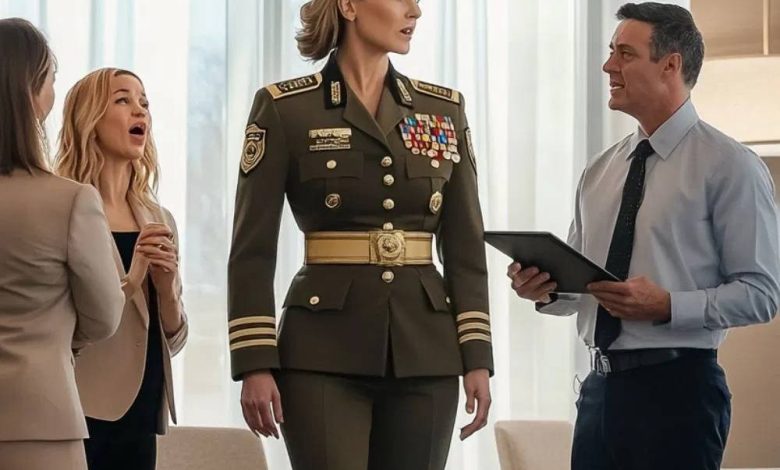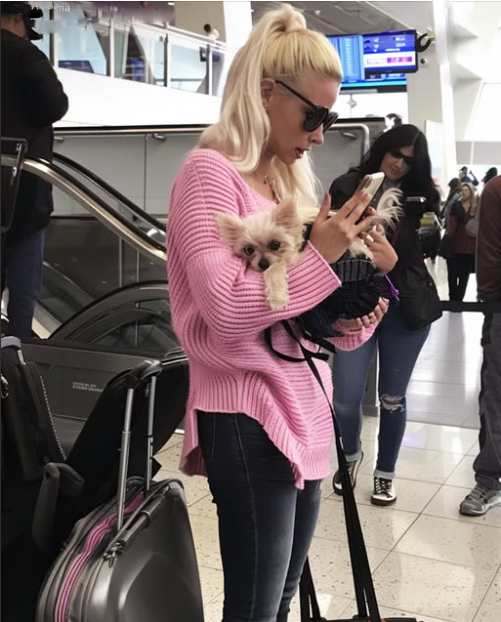
You will never get anywhere, they mocked me at dinner, The next day, dads boss walked in and said, Good morning, Colonel, Their forks dropped when
I still remember the laughter around the table, the way their voices rose in unison before dessert even touched their plates: “You’ll never get anywhere,” my brother sneered, fork poised mid‑air. My father smiled indulgently, as if I were some wayward child doomed to disappoint. That night, I slipped away from the mansion I once called home, folding their doubt into the pockets of my uniform as I headed for basic training. Five years later, I was about to shatter every expectation they had ever dared to voice.
Pulling into the driveway felt surreal. The old elm trees cast long shadows across the gravel, and the porch light, once a beacon of welcome, seemed to flicker with recognition. My rented SUV—a stark contrast to my mother’s familiar crossover—parked unevenly, engine humming its readiness. I steadied my breath, running through a mental checklist more rigorous than any battlefield drill, then stepped onto the worn concrete steps and rang the bell. Inside, the air smelled of lilacs and slow‑cooked pot roast, the same comforting scent that had once lulled me into complacency. Tonight, though, I carried something stronger than nostalgia: proof of my own worth.
“Cassandra!” my mother’s voice floated down the hallway. “Dinner’s almost ready—Ethan’s just getting changed for my surprise!” I heard her bustle beside a wall lined with family photos: Ethan’s graduation cap, his wedding portrait, then candid shots of his children. Not a single image of me in uniform, not a single memento of the countless deployments that defined my adulthood. I smoothed the crisp lines of my civilian dress and joined them at the table, nodding politely as they recounted Ethan’s latest promotion.
Father cleared his throat, offering me a tight smile. “Still moving around with the Army?” he asked, oblivious. My mother’s eyes softened. “Aren’t you a captain now?” My brother chimed in, “Must be nice, taking orders all the time.” I let them talk, the words sliding off me like bullets from body armor. For tonight, I would wait, because tomorrow would be my victory lap.
After dinner, they toasted Ethan’s success and mom’s cooking, but I slipped away to my old room where medals from ROTC lay dust‑covered on a shelf. Fresh trophies, citations for cyber‑defense operations, even my promotion certificate to Colonel—none of it had ever been unpacked here. The silence was deafening. Yet in that quiet, I felt more at home with myself than I ever had under their roof.
The next morning, I parked in a reserved spot at Westbridge Innovations, heart steady, uniform pristine. As I strode through security, I heard the guard’s respectful greeting: “Good morning, Colonel Rhys.” Heads turned; whispers blossomed. Inside, on the executive floor, Ethan stood already immersed in his slides. He looked up, his confidence flickering. “What the hell are you wearing?”
I offered a curt nod. “Good morning, Mr. Rhys. I’m here for the Project Vanguard review.” His face drained color as realization dawned. Before he could recover, Lorraine Hart—the CEO—appeared, radiant. “Colonel Rhys! What a pleasant surprise. We weren’t expecting you in person.” My handshake was firm. “I thought it prudent,” I replied.
She called us all to order. “Everyone, this is Colonel Cassandra Rhys, Pentagon liaison with final approval on all military integrations.” The corridor fell silent, the air thick with astonishment. A polished brass nameplate waited at the head of the conference table, and when I arrived, I took my place without a word. At nine sharp, I opened the meeting, guiding them through strategic metrics, technical benchmarks, and compliance protocols they had never imagined I’d master.
When Ethan pitched his integration schedule, I paused on a key slide. “Mr. Rhys, how does your model accommodate the low‑latency protocols mandated in last month’s DOD memorandum?” His confident smile faltered. “I—I’ll need to revise that,” he stammered. “By Thursday COB,” I replied. His paper notes shook as he gathered them. The room exhaled collectively; the dynamic had shifted.
Later, in the hushed hallway, my father intercepted me. His face was unreadable. “How long have you been a Colonel?” I glanced at him, feeling a strange mix of triumph and pity. “Eighteen months,” I answered plainly. He ran a hand through his hair. “You never told us.” I met his gaze. “I did. Emails, invitations, news clippings. They must have gotten lost.” My mother stepped forward, voice unsteady. “We didn’t know what it meant—Colonel sounded so… serious.” He shook his head slowly. “Maybe we should have asked.” I let the silence fill the gap between us.
Six months later, our next family dinner took place at my home in D.C. The walls were lined not with faded childhood photos but with framed articles celebrating Project Vanguard, each headline emblazoned with my name. My mother served apple pie, her hands trembling with excitement. Ethan arrived with a bottle of his favorite vintage, his smile genuine this time. “We implemented your architecture changes,” he confessed, leaning close. “Performance is off the charts.” I nodded, pride warming my chest. “Glad to hear it.”
My father lingered by a display case of my medals. He tapped the Cyber Defense ribbon and looked at me with honest respect. “You led that operation,” he said. “I read about it but never realized it was you.” I offered a small smile. “Yes, it was.” He raised his glass. “To Colonel Cassandra Rhys—who taught us that the truest authority comes not from titles, but from perseverance.” We clinked glasses, and in that moment, I understood I had earned something far deeper than their approval: I had claimed my own narrative.
Because the most powerful statement isn’t made with words. It’s lived, day after day, in every choice you make—even when no one is watching.




